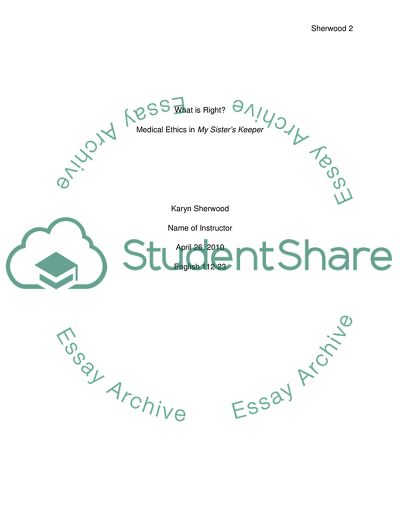Cite this document
(Medical Ethics in My Sisters Keeper Research Paper, n.d.)
Medical Ethics in My Sisters Keeper Research Paper. Retrieved from https://studentshare.org/medical-science/1736865-medical-ethics
Medical Ethics in My Sisters Keeper Research Paper. Retrieved from https://studentshare.org/medical-science/1736865-medical-ethics
(Medical Ethics in My Sisters Keeper Research Paper)
Medical Ethics in My Sisters Keeper Research Paper. https://studentshare.org/medical-science/1736865-medical-ethics.
Medical Ethics in My Sisters Keeper Research Paper. https://studentshare.org/medical-science/1736865-medical-ethics.
“Medical Ethics in My Sisters Keeper Research Paper”, n.d. https://studentshare.org/medical-science/1736865-medical-ethics.


